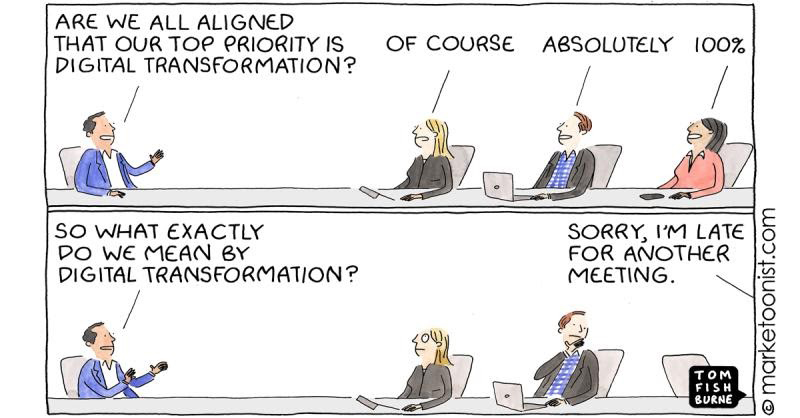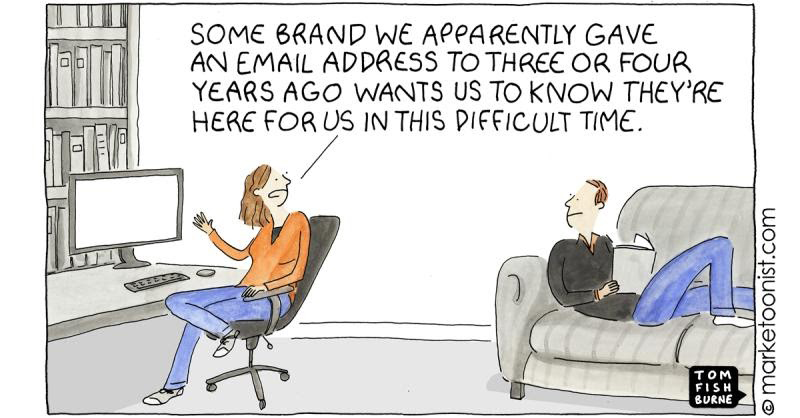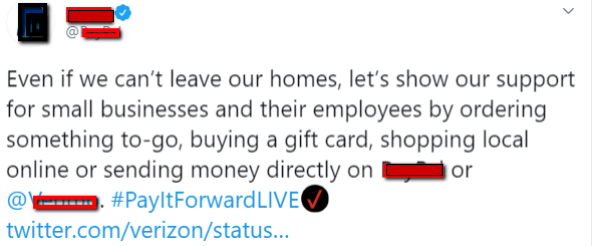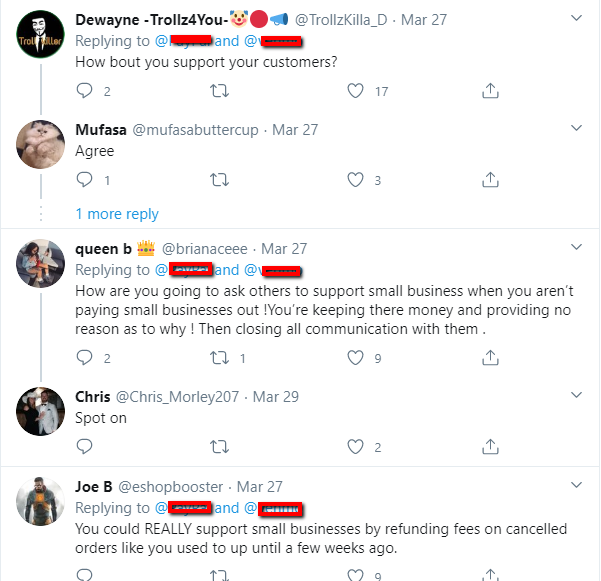We are in one of those phases today where the ongoing Coronavirus outbreak has had its impact on everyone. B2B businesses are no exception and many are struggling to keep their clients as the panic is taking over.
By necessity businesses are doubling down on digital transformation due to social-distancing and the need to work from home.
Being Careful During Digital Transformation
With things shifting to digital platforms and automation, businesses need to be more careful as online information is consumed by a wide audience.

Digital transformation is a very broad topic, and it covers a number of different types of initiatives. However, what it boils down to is how a business interacts with customers and employees using technology.
Marketers are taking extra precautions while communicating and this makes sense given the severity of the novel coronavirus. Consumers are concerned at the moment. Brands are operating in an era where channels like social media can amplify the fallout from botched communications.
Thus, it is important for internal stakeholders to come up with a strategy to ensure a smooth brand communication.
In the present global pandemic, you need to follow a few marketing principles to ensure your marketing strategy doesn’t backfire.
1. Don’t Hide Your Agendas.
The “expression of concern for our customers at this difficult time” has been the most common response to the COVID-19 from the brands.

While expressing genuine concern is fine and right, it is becoming annoying for most netizens these days.
But while doing so, other agendas may seep into even the most heartfelt messages. At times, mixing the message can give people the impression that your primary concern is for your business first and that your concern for the audience and your customer is secondary.
Yet, is a concern for your business such a bad thing?
Of course not.
It’s completely natural and the audience is well-versed about this fact.
What backfires is not putting your natural concern behind a stance of total selflessness properly.
If your product or service really helps your customers in these tough times, that’s great. However, make sure you don’t promote your business in the same social post or email where you are expressing your concern.
2. Don’t Exaggerate Your Importance
Be careful about assuming that you are more important to your audience than you really are.

Clearly, this varies by individual recipient.
The key is to know your audience. Sending an email to prospects who you have not contacted for a long time or who have never responded to your emails, will reflect your intentions to take the advantage of the situation to promote your brand.
An established payment gateway brand recently shared a tweet showing concern but the tone and intent of their message received a harsh response.

In just a few minutes, twitterians took on the brand by posting negative comments. The message fell flat and backfired because they tried to hide their self interest behind a supposed message of unified sacrifice…

Instead of asking people to use their payment gateway, this brand could have announced cutting subscription fees for all small businesses or waiving the bills of a small restaurant.
The other thing to learn from this is if you have an established brand, you need to be extra careful about your social (media) responsibilities.
3. Take Helpful Initiatives
If your products really support businesses in this difficult time, then cut prices or make it free to those who need them (obviously only if your own company is sound enough to do that).
If you happen to make more profits during this crisis, it will be a great support to others if you can share a portion of your profits with them or contribute in other novel ways.
Many businesses are coming together during the coronavirus crisis.
SalesIntel is fortunate to be able to rise to the occasion in a time of need for the business community so far (and more to come).

Help does not necessarily need to take the form of monetary or tangible assistance. It can take the form of creating or contributing to community and sharing ideas that will help other businesses.
At SalesIntel, we thought of sharing our experiences of the transition to working from home..
For this, we started a video series on LinkedIn that highlights the experience of our employees from different departments learning from home, how they are managing their work-life balance, how sales reps can connect with prospects who are not in the office, and more.
Remember that it is important to show the human side to the audience, other things can wait.
Wrapping Up: Quick Tips to Make Your ‘Help’ Feel Less Like Selling
If your products really are relevant right now, but you don’t want your prospects to get the impression of self-interested selling, here are a couple of things you might try:
1. Share ideas that don’t relate to your products.
You may know many things that can help other businesses and your prospects in this tough time. So share as many helpful tips as you can which are not related to your product.
2. Be Honest With Your Helping Intention
It’s okay to be honest when you know your product can be helpful to other businesses in this situation and can save them from losses.
For instance, SalesIntel discovered how important our unique coverage of mobile numbers is to companies struggling to get prospects on the phone when they’re no longer at their desk phones.
As you would expect, we have certainly promoted this differentiator during this time. However, we have been clear that we are promoting a competitive advantage that helps solve an acute need caused by crisis.
Just remember to be clear about your motivations and not try to hide your agenda.
All said and done, we need to stand by each other in these tough times and encourage the concept of #WinningTogether.






